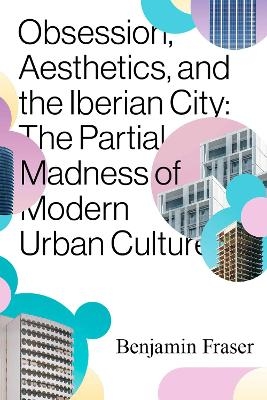
Obsession, Aesthetics, and the Iberian City
The Partial Madness of Modern Urban Culture
Seiten
2022
Vanderbilt University Press (Verlag)
978-0-8265-0238-4 (ISBN)
Vanderbilt University Press (Verlag)
978-0-8265-0238-4 (ISBN)
Although many depictions of the city in prose, poetry and visual art can be found dating from earlier periods in human history, Obsession, Aesthetics, and the Iberian City emphasizes a particular phase in urban development. This is the quintessentially modern city that comes into being in the nineteenth century. In social terms, this nineteenth-century city is the product of a specialist class of planners engaged in what urban theorist Henri Lefebvre has called the bourgeois science of modern urbanism. One thinks first of the large scale and the wide boulevards of Baron Georges von Haussmann's Paris or the geometrical planning vision of Ildefons CerdÀ's Barcelona. The modern science of urban design famously inaugurates a new way of thinking the city; urban modernity is now defined by the triumph of exchange value over use value, and the lived city is eclipsed by the planned city as it is envisioned by capitalists, builders and speculators. Thus urban plans, architecture, literary prose and poetry, documentary cinema and fiction film, and comics art serve as windows into our modern obsession with urban aesthetics. Our collective cultural obsession with the urban environment has endured, from the nineteenth century through today.
This book investigates the social relationships implied in our urban modernity by concentrating on four cities that are in broad strokes representative of the cultural and linguistic heterogeneity of the Iberian peninsula. Each chapter introduces but moves well beyond an identifiable urban area in a given city, noting the cultural obsession implicit in its reconstruction as well as the role of obsession in its artistic representation of the urban environment. These areas are Barcelona's Eixample district, Madrid's Linear City, Lisbon's central Baixa area, and Bilbao's Seven Streets, or Zazpikaleak. The theme of obsession-which as explored is synonymous with the concept of partial madness-provides a point of departure for understanding the interconnection of both urbanistic and artistic discourses.
This book investigates the social relationships implied in our urban modernity by concentrating on four cities that are in broad strokes representative of the cultural and linguistic heterogeneity of the Iberian peninsula. Each chapter introduces but moves well beyond an identifiable urban area in a given city, noting the cultural obsession implicit in its reconstruction as well as the role of obsession in its artistic representation of the urban environment. These areas are Barcelona's Eixample district, Madrid's Linear City, Lisbon's central Baixa area, and Bilbao's Seven Streets, or Zazpikaleak. The theme of obsession-which as explored is synonymous with the concept of partial madness-provides a point of departure for understanding the interconnection of both urbanistic and artistic discourses.
Benjamin Fraser is a professor in the department of Spanish and Portuguese at the University of Arizona.
| Erscheinungsdatum | 09.12.2021 |
|---|---|
| Verlagsort | Tennessee |
| Sprache | englisch |
| Maße | 152 x 228 mm |
| Gewicht | 520 g |
| Themenwelt | Geisteswissenschaften ► Geschichte ► Regional- / Ländergeschichte |
| Geisteswissenschaften ► Sprach- / Literaturwissenschaft ► Anglistik / Amerikanistik | |
| Geisteswissenschaften ► Sprach- / Literaturwissenschaft ► Literaturwissenschaft | |
| Sozialwissenschaften ► Soziologie ► Empirische Sozialforschung | |
| ISBN-10 | 0-8265-0238-5 / 0826502385 |
| ISBN-13 | 978-0-8265-0238-4 / 9780826502384 |
| Zustand | Neuware |
| Informationen gemäß Produktsicherheitsverordnung (GPSR) | |
| Haben Sie eine Frage zum Produkt? |
Mehr entdecken
aus dem Bereich
aus dem Bereich


